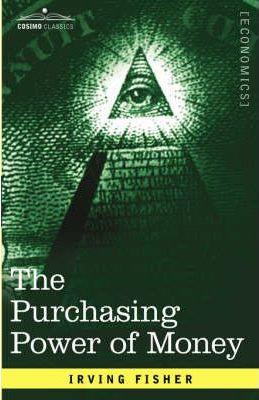Of all wealth, man himself is a species. Like his horses or his cattle, he is himself a material object, and like them, he is owned: for if slave, he is owned by another, and if free, by himself. But though human beings may be considered as wealth, human qualities, such as skill, intelligence, and inventiveness, are not wealth. Just as the hardness of steel is not wealth, but merely a quality of one particular kind of wealth, -hard steel, -so the skill of a workman is not wealth, but merely a quality of another particular kind of wealth-skilled workman. Similarly, intelligence is not wealth, but an intelligent man is wealth. -from "Chapter I: Primary Definitions" Perhaps America's first celebrated economist, Irving Fisher-for whom the Fisher equation, the Fisher hypothesis, and the Fisher separation theorem are named-staked an early claim to fame with his revival, in this 1912 book, of the "quantity theory of money." An important work of 20th-century economics, this work explores: - the circulation of money against goods - the various circulating media - the mystery of circulating credit - how a rise in prices generates a further rise - influence of foreign trade on the quantity of money - the problem of monetary reform - and much more. AUTHOR BIO: American economist IRVING FISHER (1867-1947) was professor of political economy at Yale University. Among his many books are Mathematical Investigations in the Theory of Value and Prices (1892), The Rate of Interest (1907), Why Is the Dollar Shrinking? A Study in the High Cost of Living (1914), and Booms and Depressions (1932).










